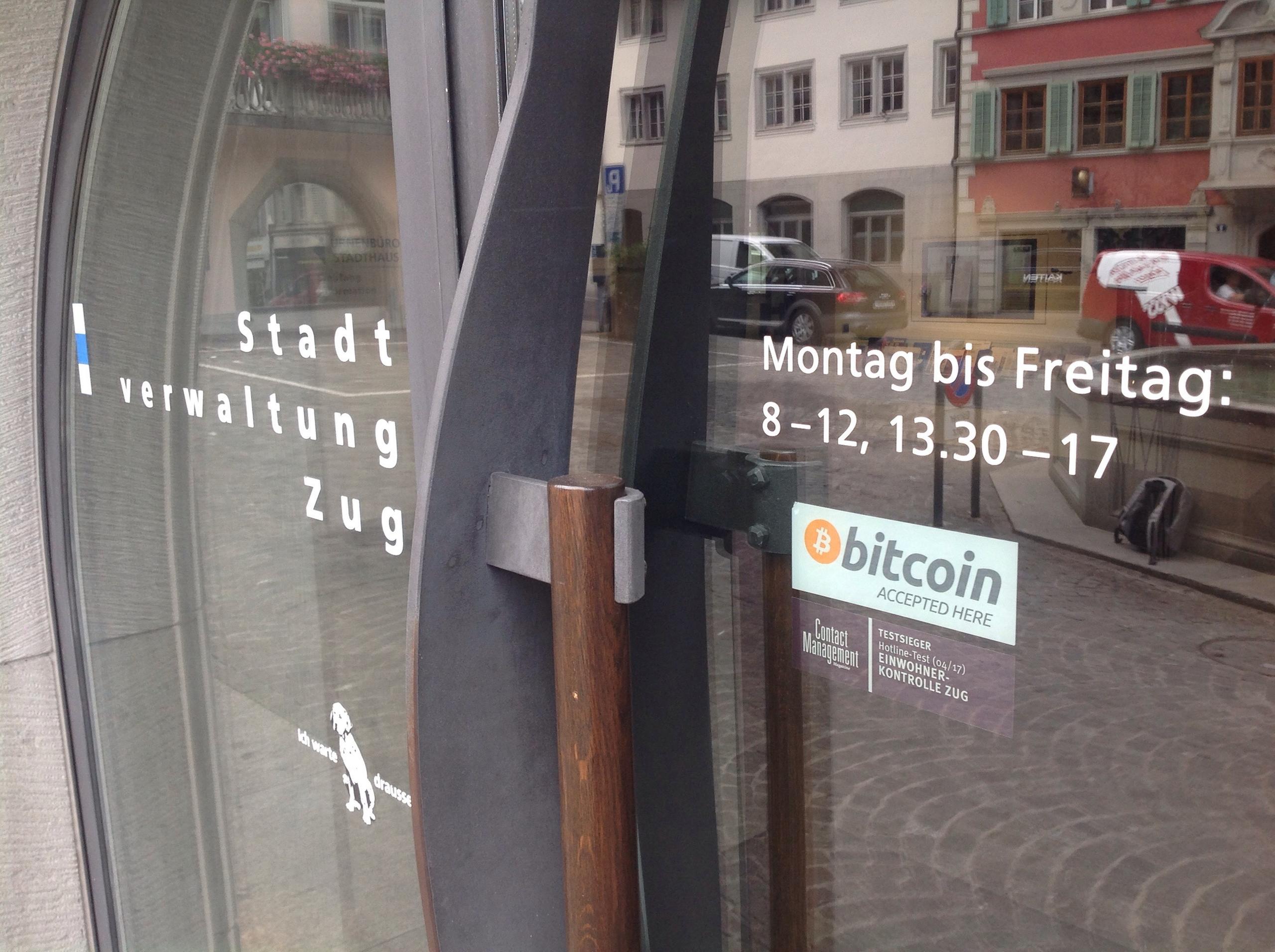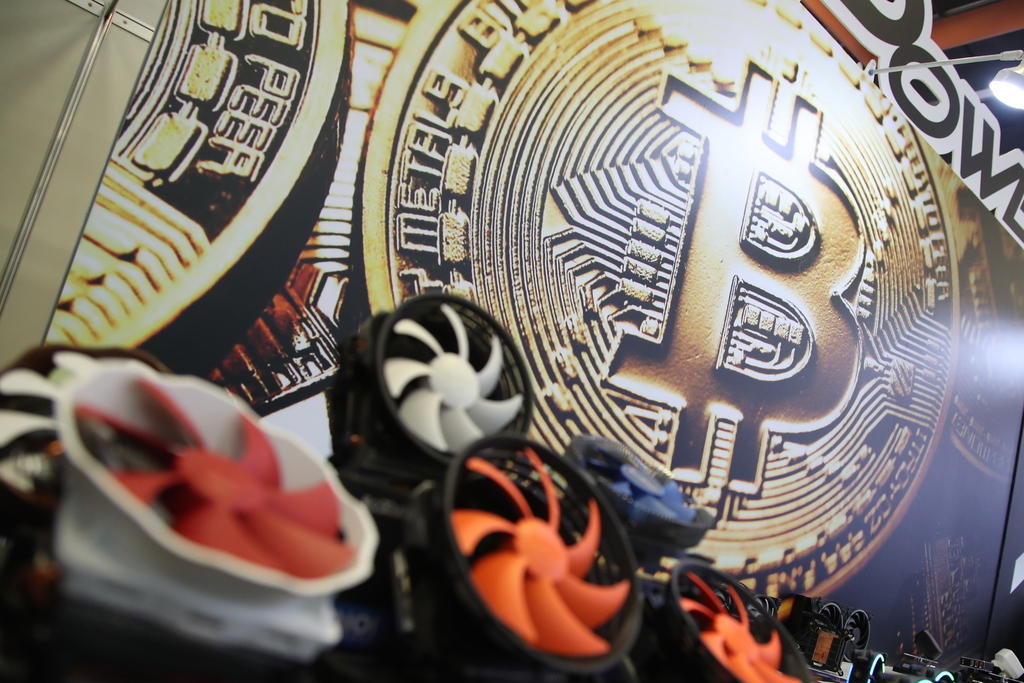Blockchain and bank accounts: a Swiss tightrope act

The Swiss Bankers Association (SBA) has responded to blockchain industry criticism by issuing guidelines on how companies that deal in cryptocurrencies can get bank accounts. One firm perhaps typifies the uneasy relationship between the two worlds of finance.
Founded in 2014, SecurosysExternal link has gained a strong foothold in Switzerland with hardware units that encrypt financial transactions.
Securosys boxes are installed in the Swiss interbank clearing system (SIC), the Swiss stock exchange and at banks that trade over these platforms. Until now, the firm has had no direct involvement with cryptocurrencies and has corporate accounts at three household-name Swiss banks.

More
Pressure builds on banks to offer Swiss crypto start-ups accounts
But those banking relationships have taken a wobble since Securosys announced it would raise fresh funds through an ‘initial token offering’ (ITO) that will exchange tokenised shares in the firm for capital, including cryptocurrencies. The cryptography specialist also views cryptocurrencies as a natural new market for its services.
“This has made our banks very nervous, even though we expect most investments to come in the form of fiat currencies [‘standard’ currencies such as Swiss francs],” co-founder and CEO Robert Rogenmoser told swissinfo.ch. “We should get used to the fact that the world is changing. We should focus on doing this in the right way that benefits everyone.”
The ‘right way’ for Securosys is to issue so-called security tokens that function like shares. The firm says it is also committed to undertaking rigorous anti-money laundering checks on investors and their funds.
Familiar problem
This is a problem familiar to ‘Crypto Nation’ Switzerland, a leading global blockchain hub with more than 500 established firms. Many start-ups with exposure to bitcoin complain that they are being denied basic banking services, leading to fears that the industry is unsustainable in the long run.
On the other side of the coin, Swiss banks have been bruised by a damaging tax evasion row with the United States and are also obliged to comply with stricter anti-money laundering rules.
Banks have therefore treated unregulated cryptocurrencies, which afford holders a high degree of anonymity, with suspicion. Their mood was not improved when the ‘initial coin offering’ (ICO) crowd investing craze threw up a high proportion of start-up failures mixed with a dash of outright fraud.
Last week, the SBA attempted to ease friction between traditional finance and the emerging blockchain economy with a set of minimum standards for blockchain firms. Companies accepting cryptocurrencies should establish the identity of investors and find out where they got the digital money from, it says. However, individual banks may impose tighter standards by requiring more data on how cryptocurrencies changed hands further down the chain.
Reactions
Oliver Bussmann, president of the Crypto Valley Association (CVA), has applauded the move, saying it was “very important that the SBA, CVA and authorities could come together and successfully work on a solution that can ease some of the restrictions that could hamper the continuation of that growth”.
The Bitcoin Association Switzerland (BAS) said the SBA guidelines were “a step in the right direction” but argued that the playing field is still not level. BAS specifically takes issue with SBA claims that blockchain companies that do not deal in bitcoin will be treated just like any other sector.
BAS community officer Roger Darin says banks expect blockchain firms to provide more evidence of future business success and stability than other small companies. “How many carpenters need to demonstrate a compliant business model with an in-depth business plan detailing adequate processes and resources?” he told swissinfo.ch. “This is flipping the spirit of the law around, making start-ups guilty until they prove themselves innocent.”
“Opportunity”
The SBA sees things differently. “Banks see blockchain technology as an opportunity opening up an array of possibilities for the country as a financial and technology location,” it stated last week. Part of the problem may simply stem from a clash of cultures, according to SBA advisor Adrian Schatzmann.
Past blockchain ventures have come unstuck when they simply waved their ‘White Paper’ technical prospectus under the noses of bankers, Schatzmann said at a press briefing last week. “We have seen a culture clash where people simply didn’t understand each other.”
Such problems should resolve themselves as the blockchain industry continues to professionalise, believes the CVA’s Bussmann.
But the picture remains divided across the country: swissinfo.ch research has found a number of blockchain firms getting bank accounts. However, there appears to be an equal number of complaints from companies having to go to neighbouring Liechtenstein for a banking relationship.

In compliance with the JTI standards
More: SWI swissinfo.ch certified by the Journalism Trust Initiative




You can find an overview of ongoing debates with our journalists here. Please join us!
If you want to start a conversation about a topic raised in this article or want to report factual errors, email us at english@swissinfo.ch.